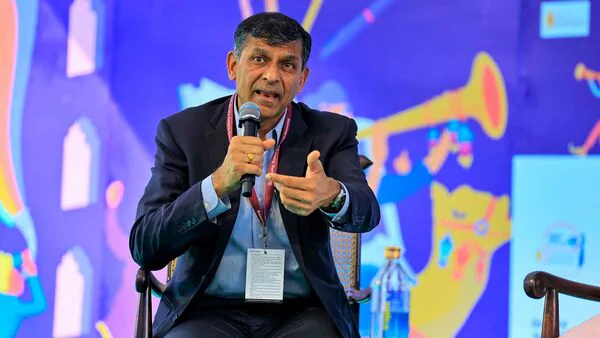
Ex RBI Governor Raghuram Rajan Says US' HIRE Act A Bigger Threat To India Than H-1B Visa Fee Hike-What Is It?
“One of our biggest concerns is not so much the goods tariffs but if they try and find ways of imposing tariffs on services. This is a threat. There's the HIRE Act, which Congress is debating, which will try and put tariffs on outsourced services. How that'll be implemented is anybody's question, but this creeping of tariffs beyond goods to services to Indian visitors into the US through the H-1B route - these are all concerns,” Rajan said, according to DeKoder.
What is HIRE bill?The HIRE (Halting International Relocation of Employment) Bill aims to discourage US companies from outsourcing work to foreign workers by imposing tax measures. Under the proposed legislation, payments made by American companies to foreign individuals or entities would face a 25% excise tax, significantly raising their tax obligations. Additionally, companies would no longer be able to claim deductions for expenses related to such outsourced payments.
The revenue generated from these taxes would be directed toward reskilling, apprenticeships, and workforce development programs for US citizens. The bill covers a wide range of sectors, including IT services, BPO, consulting, GCCs (global capability centers), and freelance services. Indian IT service providers are expected to be most affected, as the US accounts for 70% of India's IT export revenue. Other countries likely to feel the impact include Ireland, Israel, Poland, and the Philippines. Media reports indicate that if the bill is passed before December 31, 2025, overseas payments made by US companies from January 1, 2026, onwards would be subject to the 25% tax.
Also Read | Raghuram Rajan: It's game open on AI rules. An ideal balance is yet to be struckMeanwhile, Rajan pointed out that India has already faced record US tariffs of 50%, compared with 47% for China, affecting key sectors such as textiles.
“It certainly is a very big issue for India for certain industries - textiles for example - where we probably are losing festival season in the US Going forward, what we don't want is the supply chains we've built up and that we've integrated into to be permanently disrupted,” he stated. He stressed that India must aim for lower tariff levels during ongoing negotiations. "It's extremely important for India that our tariffs be brought down quickly, especially in these areas where we have labour-intensive industries which have made a certain amount of headway into the US," Rajan added.
Rajan explains why need for H-1B visas for Indian companies has been 'diminishing'He asserted,“Over time, the need for H-1B visas for Indian companies has been diminishing because a lot more can be done through virtual networks rather than by physical presence. More than H-1B, it's a question of whether this outsourcing will be tariffed - and that would be a bigger concern.”
Also Read | Raghuram Rajan says Trump 50% tariffs on India a 'wake-up call'He further noted that existing H-1B visas and STEM graduates moving into employment would not be affected by the new fee, and companies could adapt their hiring strategies.“Indian companies can still have personnel in the US - they may recruit more from Indian students who acquire degrees in the US. But finally, it may well be that Indian companies decide they don't need to send somebody there. Let me hire a couple of people there to do that front-end job, but I will do much more on the virtual side,” Rajan stated.
Rajan added that such changes could accelerate the growth of India-based operations for global firms. He mentioned, "When we think about US companies like Microsoft that hire on an H-1B basis, many more of those people will be hired directly in India but kept in their GCCs and transmitting their work across. There will be adjustments. The net effect will be less H-1B immigration into the US, but it doesn't look as bad as it seemed at first glance. I think the HIRE Act is much more important for us."
Key Takeaways- Rajan noted that the legislation currently being discussed in the US Congress represents a greater risk to India's service exports and its global talent flow. He mentioned that existing H-1B visas and STEM graduates moving into employment would not be affected by the new fee, and companies could adapt their hiring strategies.
Legal Disclaimer:
MENAFN provides the
information “as is” without warranty of any kind. We do not accept
any responsibility or liability for the accuracy, content, images,
videos, licenses, completeness, legality, or reliability of the information
contained in this article. If you have any complaints or copyright
issues related to this article, kindly contact the provider above.


















Comments
No comment